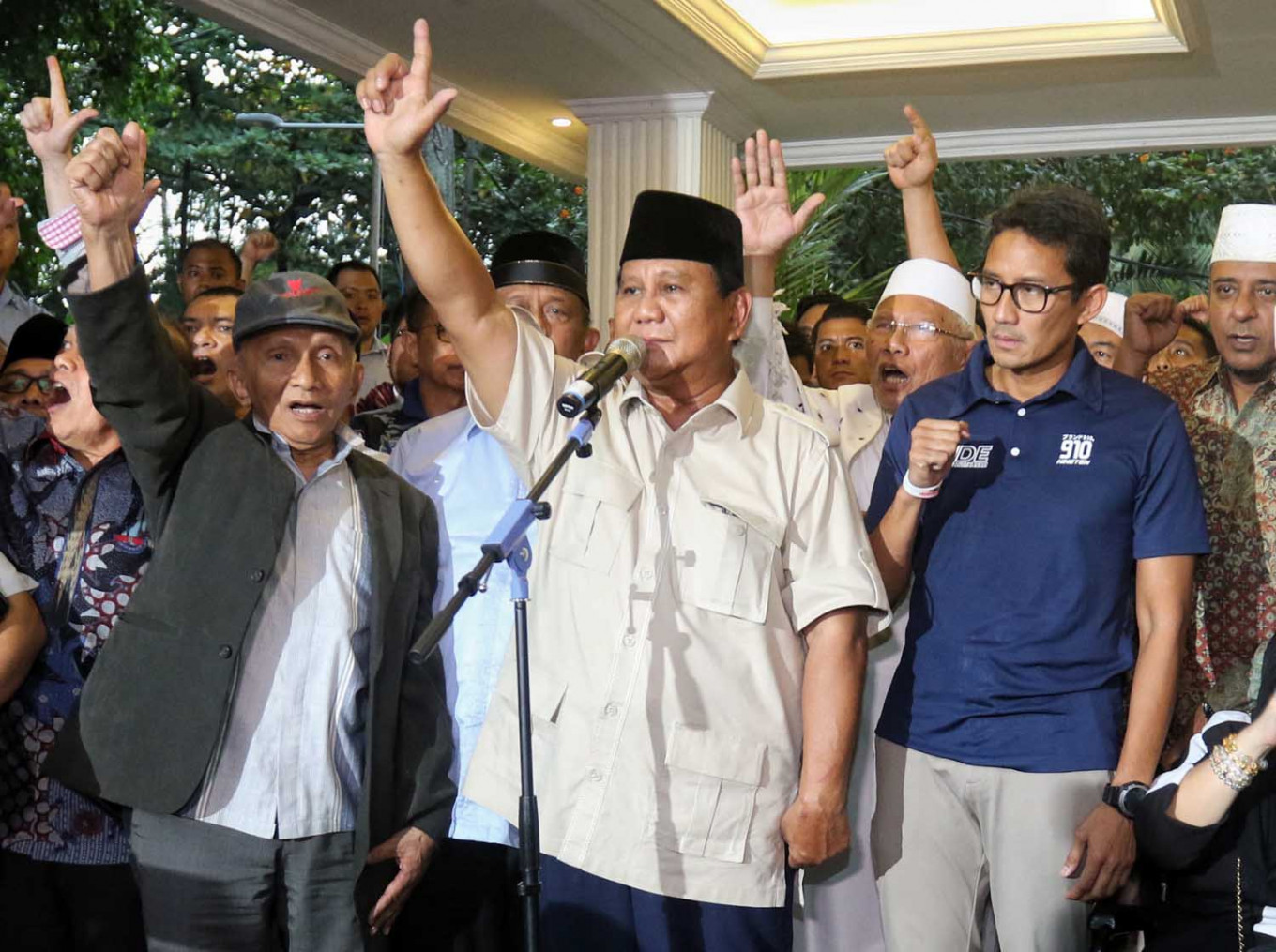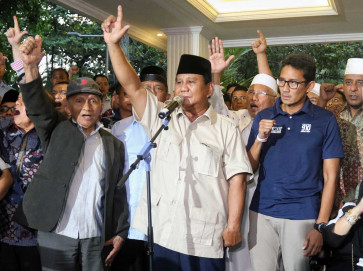Popular Reads
Top Results
Can't find what you're looking for?
View all search resultsPopular Reads
Top Results
Can't find what you're looking for?
View all search resultsIs our democracy in danger?
Prabowo asserted that he will continue to mobilize people power against the “deception” infecting the democratization process. The current controversy raises two serious legal questions. First, is the people power movement, as the government has alleged, treasonous? Second, does the government response to the movement threaten to muzzle our democracy and contravene Indonesians’ human rights?
Change text size
Gift Premium Articles
to Anyone
O
n Tuesday evening, presidential candidate Prabowo Subianto yet again claimed victory in the 2019 election, while blasting the government for purported corruption. In his closing speech at the National Symposium of 2019 Election Fraud, Prabowo described government treatment of the “people power” movement as a disaster for Indonesian democracy, and derided as groundless the allegations of treason that the government has levied against National Mandate Party (PAN) campaigner Eggi Sudjana.
Prabowo asserted that he will continue to mobilize people power against the “deception” infecting the democratization process. In the context of the legal assistance team proposed by Coordinating Political, Legal and Security Affairs Minister Wiranto, some 450,000 military and police personnel assigned to guard election facilities, the tension is palpable.
The current controversy raises two serious legal questions. First, is the people power movement, as the government has alleged, treasonous? Second, does the government response to the movement threaten to muzzle our democracy and contravene Indonesians’ human rights?
Put simply, is our democracy in danger? History has shown us numerous examples of democracies destroyed by coup d’état, or by direct revocation of democracy. Democracies in Argentina, Brazil and Nigeria all perished in this manner. But democracies may also decay at the hands of legitimate leaders who erode democratic freedoms, subverting the process that brought them to power. Such leaders may persecute critical voices, paralyze the freedom of press and exile opposition politicians.
Safeguards do exist. Most fundamentally, the law offers an essential bulwark against government assumption of power, limiting the potential for a democracy to descend into dictatorship. What then, are we to make of the charges of treason directed toward opposition politician Eggi? Is this a legitimate interpretation of Indonesian law?
The government has cited articles 104-107 of the Criminal Code (KUHP) as the basis for their accusation. These articles define treason roughly as efforts in aid of revolution. The Free Aceh Movement (GAM) of 1976-2005 fell readily under this definition.
However, a considerable discrepancy exists between the people power movement, with its vaguely threatening numbers and its limited goals in challenging the electoral decision, and GAM, a movement explicitly devoted to hostile action and regime change.


















